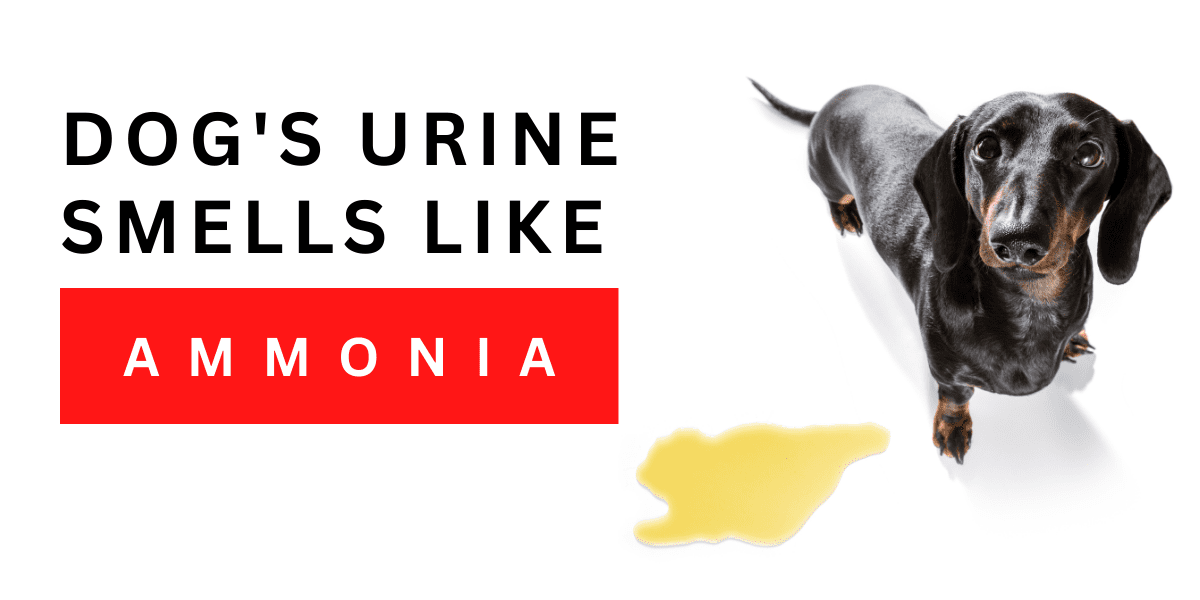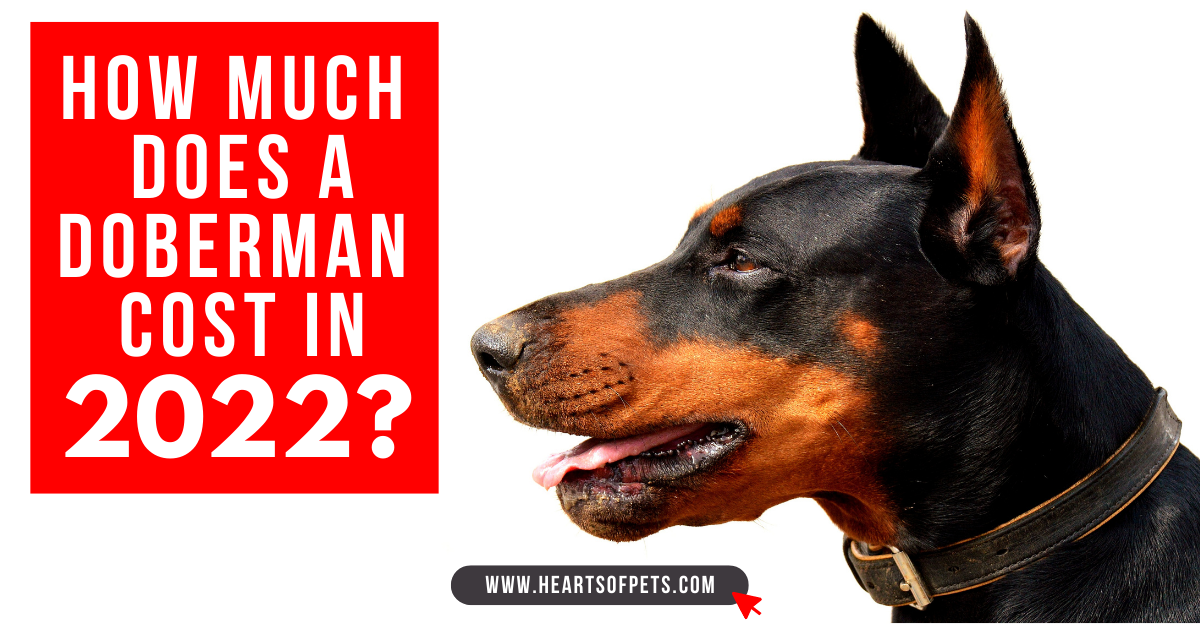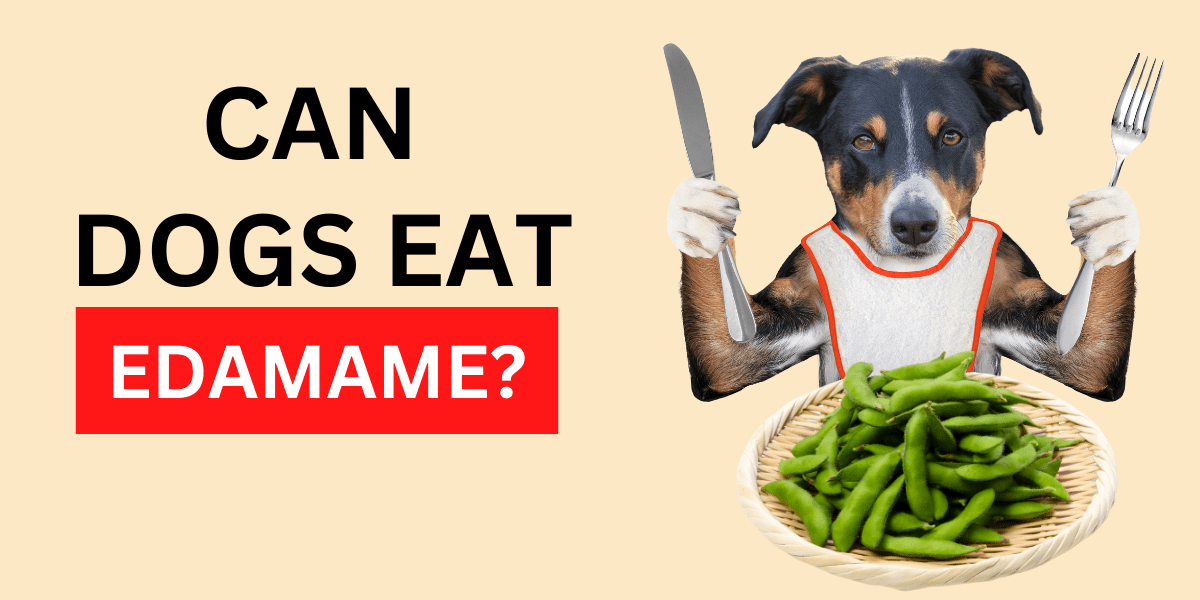
As a pet parent, you want to make sure your furry friend is getting all the nutrients they need to stay healthy and happy. But with so many different foods out there, it can be hard to know what’s safe for your pup to eat. So, can dogs eat edamame?
What is Edamame?
If you’re a pet owner, chances are you’ve heard of edamame. But what is it, exactly? Edamame is a type of soybean that is often used in Asian cuisine, especially in Japanese dishes. It can be eaten whole or shelled, and is often served steamed. Edamame is high in protein and low in fat, making it a healthy option for both humans and pets alike.
Edamame is an excellent source of protein, vitamins, and minerals. Protein is essential for the growth and repair of tissues, and helps to support a strong immune system. Vitamins and minerals are essential for the proper function of all systems in the body. Edamame is also a good source of fiber, which helps to keep the digestive system healthy.
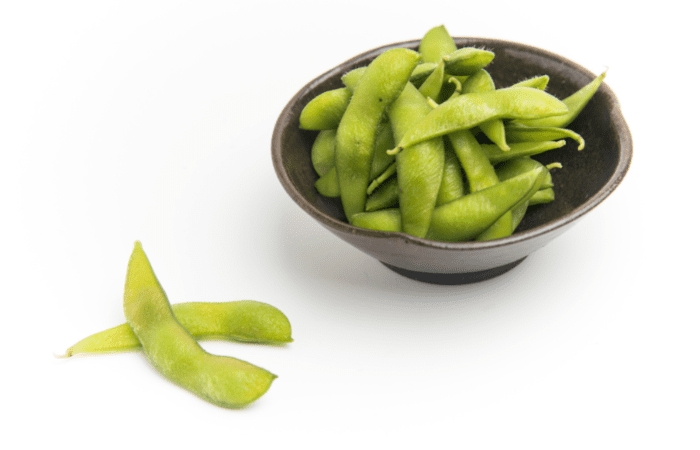
Can Dogs Eat Edamame?
Technically, yes. Edamame makes an excellent snack or addition to your pet’s diet. It’s high in protein and other essential nutrients, making it a great way to help your pup stay healthy and strong. Edamame is also low in fat and calories, so it’s a great option for dogs who are trying to lose weight or maintain a healthy weight.

How to Serve Edamame to Your Dog
When feeding edamame to your dog, it’s important to cook it first. Edamame beans can be hard for dogs to digest if they’re not cooked properly. You can steam or boil the beans before feeding them to your pet. You can also buy edamame that is already cooked and frozen.
And remember to take the shells off the edamame before giving them to your dog. In addition to being difficult for dogs to digest, the shells can be a choking hazard. You can give your dog the whole bean, or cut it into smaller pieces.
As with any new food, it’s important to introduce edamame to your dog slowly. Start with a small amount and increase the amount gradually over time. This will help you gauge your pet’s tolerance and avoid any stomach upset.
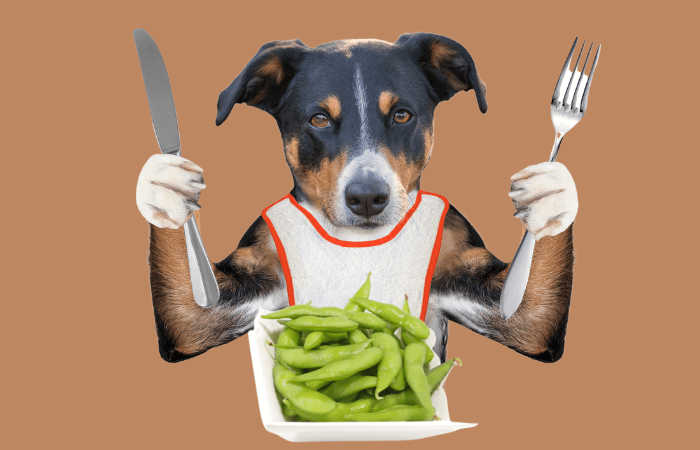
The Health Benefits of Edamame for Dogs
Protein-Rich
Edamame are a great source of protein for dogs. Protein is essential for maintaining a healthy weight, building strong muscles, and having shiny fur.
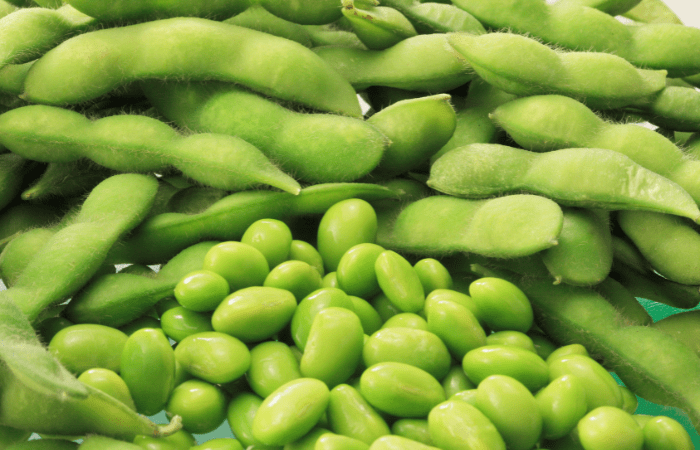
Vitamins and Minerals
Edamame are also packed with vitamins and minerals that are essential for your dog’s health. Vitamins A and C help boost your dog’s immune system, while vitamin B6 helps keep their energy levels up. Edamame are also a good source of iron, which is necessary for transporting oxygen throughout the body.
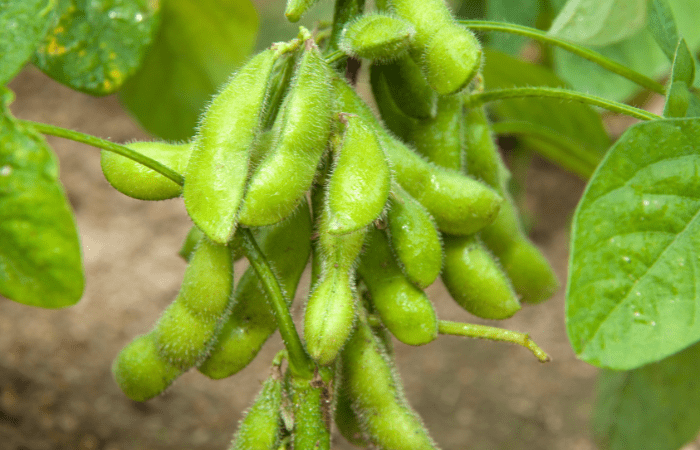
Fiber-Rich
Edamame are rich in fiber, which can help regulate your dog’s digestion. Fiber helps keep your dog’s digestive system running smoothly by promoting regular bowel movements and preventing constipation.
Edamame is a nutritious food that offer a variety of health benefits for dogs. If you’re looking for a protein-rich, vitamin and mineral-packed treat for your pup, edamame is a great option! And because they’re high in fiber, they can also help regulate your dog’s digestion. So go ahead and enjoy some edamame – your dog will thank you.
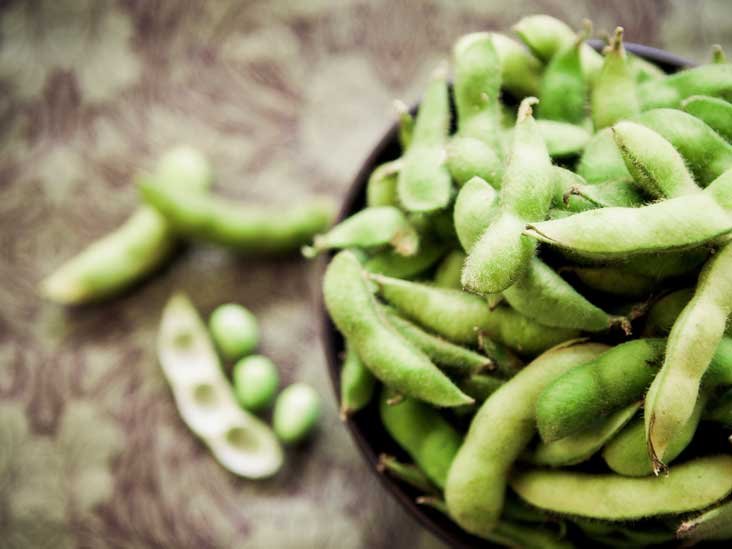
Possible Health Risks Edamame Could Pose Dogs
Allergies
Some dogs may experience allergic responses when exposed to edamame beans and other soy products. Keep a look out for symptoms of an allergic reaction in your dog, which may include hair loss, increased scratching, rashes, eyelid irritation, ear infections, diarrhea, and vomiting, starting with the first time you give them edamame.
Choking
Edamame pods must be removed before being fed to your dog since they can choke tiny dogs. Edamame pods shouldn’t be fed to larger dog breeds since they can upset their stomachs and are difficult to digest.
Bloat and Gas
Serving your dog huge amounts of edamame on a regular basis might result in excessive gas and canine bloat, a potentially serious medical condition. If your dog exhibits symptoms of bloating after eating edamame, visit the vet right away.
Dehydration
Only give your dog plain edamame beans because flavored versions’ seasonings and sauces might induce salt poisoning or lead your dog to become dehydrated. Avoid packaged edamame snacks from the grocery store as they could include additives that upset your stomach.

Can Dogs Eat Other Beans and Legumes
Beans and legumes are an excellent source of protein, fiber, and vitamins for humans. They are also relatively inexpensive, which makes them a great addition to many people’s diets. But can the same be said for dogs?
The short answer is yes! Dogs can safely eat most beans and legumes. However, as with any new food, it is always best to introduce beans and legumes to your dog gradually to avoid tummy troubles.
Some of the most popular beans and legumes that are safe for dogs include black beans, kidney beans, lentils, chickpeas, and peas. These foods are packed with nutrients that can help keep your dog healthy and fit. For example, black beans are a good source of iron, which is essential for red blood cell production. Kidney beans are high in fiber, which can help with digestion. Lentils are a good source of protein, which is necessary for proper muscle development. Chickpeas are a good source of copper, which helps maintain healthy bones and joints. And peas are a good source of vitamins A and C, which are important for immunity.
Of course, as with any food, there are some caveats when feeding beans and legumes to your dog. First of all, they should always be cooked before being fed to your pet. Raw beans and legumes can be hard to digest and may cause stomach upset. Secondly, if you are feeding your dog canned beans or legumes, make sure to rinse them thoroughly first to remove any excess salt or sugar that might be present in the canning liquid. Lastly, never feed your dog baked beans or bean dip, as these foods often contain harmful ingredients like onions or garlic that can be toxic to dogs.
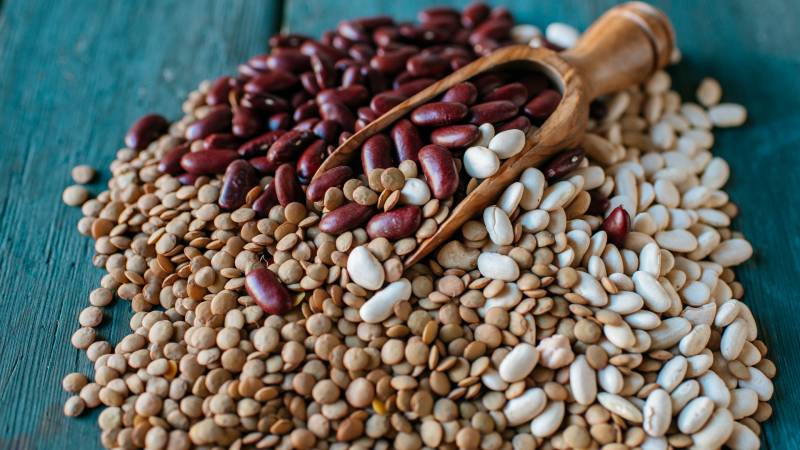
Can Dogs Eat Cooked or Uncooked Vegetables?
The answer is both yes and no. While most dogs can eat cooked vegetables without any problems, some dogs may experience digestive issues after eating cooked vegetables. On the other hand, most dogs can eat raw vegetables without any problems. So which is better for your dog – cooked or raw vegetables?
The answer to this question depends on a few factors, including your dog’s age and health condition. Generally speaking, it is a good idea to mix cooked and raw vegetables into your dog’s diet. This will provide them with a range of nutrients and minerals that they need to stay healthy.
Cooked vegetables are a good source of fiber, while raw vegetables are a good source of antioxidants. Antioxidants help protect your dog’s cells from damage, which can help keep them healthy and reduce their risk of developing certain diseases.
Both cooked and raw vegetables are also a good source of vitamins and minerals. Cooked vegetables are high in vitamin A, vitamin C, and vitamin K, while raw vegetables are high in vitamins B6 and E. Both types of vegetables are also rich in important minerals like calcium, magnesium, and potassium.

So what vegetables can you feed your dog? Some of the best options include broccoli, carrots, sweet potatoes, pumpkin, spinach, and zucchini. These vegetables are all packed with nutrients that can help keep your dog healthy and strong. Just be sure to cook them properly before feeding them to your pet.
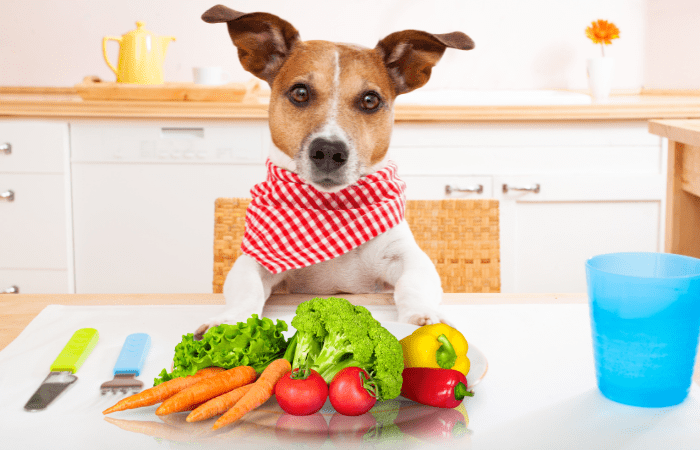
Can Dogs Eat Fruit?
Yes is the simplest way to respond to this – dogs can eat fruit. However, there are some things to keep in mind before you start adding apples and bananas to Fido’s bowl at mealtime. First of all, not all fruits are created equal when it comes to nutritional value for dogs. While some fruits are packed with vitamins and minerals that can benefit your pup, others may not offer much in the way of nutrition and could even be harmful if consumed in large quantities.
For example, grapes and raisins are two fruits that should be avoided as they can cause kidney damage in dogs. While most fruits are safe for dogs to eat in moderation, certain fruits like avocados contain a toxin called persin that can be toxic to animals if consumed in large quantities. So, it is important to do your research before feeding any new foods to your dog and always consult with your veterinarian if you have any questions or concerns about your pet’s diet.
When it comes to feeding fruit to your dog, moderation is key. Just like with anything else, too much of a good thing can be bad for your pup. Allow your dog to enjoy small pieces of fruit as a treat or add a little bit of diced fruit to their regular food bowl at mealtime. If you’re looking for some good fruit options for your furry friend, apples, blueberries, watermelon, and cantaloupe are all safe choices that offer some great health benefits for dogs.

Dogs can eat fruit, but there are a few considerations to make before introducing any new foods to their diet. Always get advice from your veterinarian if you are uncertain about what is best for your puppy.
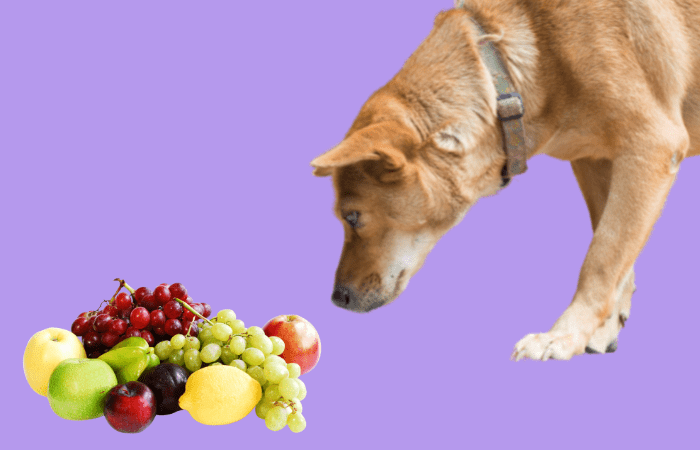
Can Dogs Eat Edamame? The Final Verdict
Yes, dogs can eat edamame. However, there are a few things to keep in mind before you start sharing your snacks with your dog. First of all, edamame beans are high in protein, which is great for dogs. They’re also a good source of fiber, vitamins, and minerals. That said, they should be eaten in moderation as part of a well-balanced diet.
Edamame beans are typically served boiled and salted, which isn’t the best option for dogs. The salt can cause dehydration and gastrointestinal issues, so it’s best to avoid feeding your dog salty edamame beans. Instead, opt for boiled beans that have been cooled to room temperature and then offer them without any added salt or seasonings. You can also give your dog frozen edamame beans, but make sure to thaw them first so they don’t pose a choking hazard.
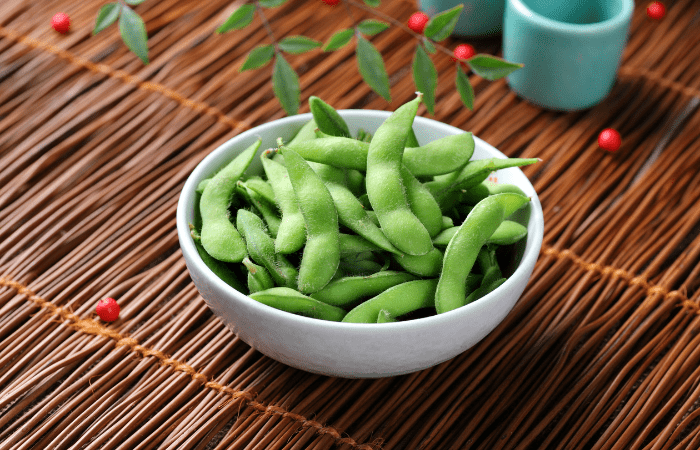
As always, consult with your veterinarian before making any changes to your dog’s diet. They can help you determine how many edamame beans are safe for your pup to eat based on their individual needs.

Conclusion
So there you have it, everything you need to know about feeding your dog edamame. While edamame beans are safe for dogs to eat, they should be given in moderation and without any added salt or seasonings. If you have any questions or concerns about your dog’s diet, be sure to consult with your veterinarian.
Frequently Asked Questions (FAQs)
CAN DOGS EAT THE EDAMAME SKIN?
No! Dogs shouldn’t be given edamame shells. This part of the bean, also referred to as the skin or the pod, is very difficult to digest.
HOW MUCH EDAMAME CAN MY DOG EAT?
Although edamame is healthy for dogs, you shouldn’t give your dog too much because a lot of it can make your dog sick. The best dog treat serving size for your four-legged pet is one to five unsalted, out-of-shell beans.
WHY DOES MY DOG LIKE EDAMAME?
Edamame is a nutritious protein food that is safe for dogs. It is abundant in calcium, vitamin C, and omega-3 fatty acids. Edamame can help your dog maintain a healthy weight and skin and hair while also lowering the chances of diabetes and obesity.
CAN DOGS HAVE BROCCOLI?
Yes. Dogs can indeed eat broccoli. As long as there are no flavors or oils added, dogs can consume the vegetable both cooked and uncooked. However, this vegetable should only ever be eaten in extremely little amounts, particularly since the florets contain isothiocyanates, which can irritate dogs’ stomachs.



